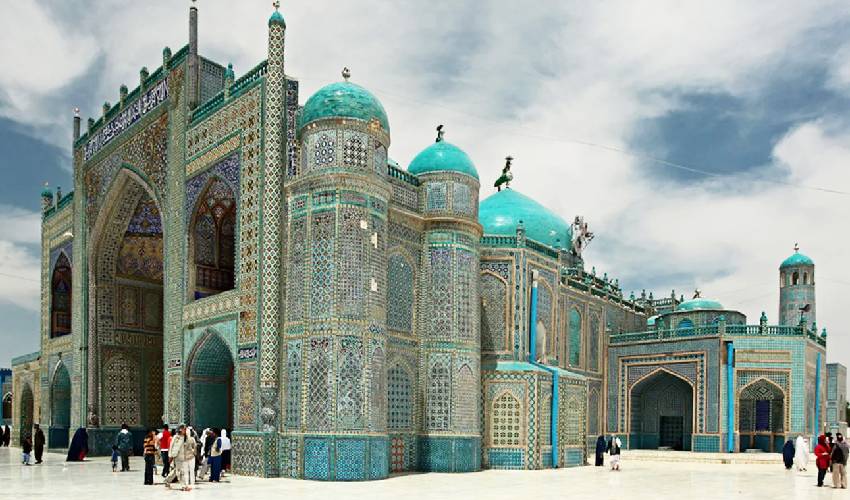His soldier son has been touring Afghanistan with insurgents in his crosshairs, but American traveler Oscar Wells has a different goal – a tour promoted by the Taliban’s fledgling tourism sector.
“It’s a unique place, it touches my heart,” the 65-year-old farmer from Indiana told AFP, praising “its beautiful mountains” with “people living the old way”.
Marveling at the 15th-century Blue Mosque in northern Mazar-i-Sharif, Wells is among a small but growing number of travelers coming to Afghanistan since the end of the war.
Decades of conflict have made tourism extremely scarce, and although most of the violence has now subsided, visitors face extreme poverty, dilapidated cultural sites and inadequate hospitality infrastructure.
After the fall of the Western-backed government in 2021, they evacuate most embassies under the tight control of Taliban authorities without consular support.
On arrival in each province, they must register with officials, adhere to a strict dress code and undergo searches at checkpoints by men armed with Kalashnikovs.
Islamic State attacks also still pose a potential threat in the country.
“The first thing your loved ones will say is, ‘You’re crazy to go there!'” French tourist Didier Goudant, a 57-year-old lawyer, said of the country Western governments are warning against visiting.
Safety concerns worried Nayuree Chainton, a 45-year-old Thai travel agency owner in Bangkok who recently took a six-day trip with a group to test the waters.
“I feel safe even through the checkpoints in the cities,” she said during a visit to the shrine in the capital, Kabul.
Sharing a good picture
The number of foreign tourists visiting Afghanistan increased by 120 percent year-on-year in 2023, reaching nearly 5,200, according to official figures.
No country has yet officially recognized the Taliban government – in part because of its strict restrictions on women – but it has welcomed foreign tourism.
“Afghanistan’s enemies are not presenting the country in a good light,” said Information and Culture Minister Khairullah Khairkhwa.
“But if these people come and see what it’s really like … they’re definitely going to share a good picture of it,” he said.
But Wells and Goudant – on a trip with Untamed Borders, which also offers tours to Syria and Somalia – describe their visit as a way to connect with the Afghan people.
Tourists “like us are curious and want to be in touch with the population, try to help them a little bit,” Goudant said on his second trip, which included skiing in the central province of Bamiyan.
He said his visits included donations to local groups, which he described as “small-scale humanitarian work” in a country that has seen a drastic drop in foreign aid since the Taliban took power.
For Wells, there is a “guilt about leaving” American soldiers.
“I really felt we had a terrible departure, it created such a vacuum and disaster,” he said. “It’s good to help these people and maintain relationships.”







